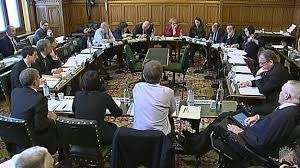Converting schools to academies: report and recommendations published
Tuesday
10th
July
2018
The Public Accounts Committee (PAC) has today published a report into its Converting schools to academies inquiry. In their summary, the PAC says “the Department [for Education] still does not seem to be learning the lessons from high profile academy failures that have been costly for taxpayers and damaging to children’s education.” The report says that 72% of secondary schools are now academies and 27% of primary schools; overall, academies are teaching 47% of pupils.
Amongst the conclusions and recommendations of the report are:
- The PAC considers the Department for Education’s (DfE) focus on “converting large numbers of schools quickly” to have been “at the expense of rigorous due diligence checks and risk assessment.” In response to this, the DfE is asked to review academy trust failures, identify lessons from these and how they can be used to strengthen future scrutiny arrangements. The DfE is also asked about how it plans to improve transparency for parents, specifically if they are “still considering whether parents should become members of academy trusts to help with transparency issues”.
- Academy trust boards “have a legal responsibility to keep their trusts solvent”, meaning that they are not willing to take on schools that are not financially sustainable; this particularly affects some small rural primary schools because “they are financially vulnerable or geographically isolated”. The DfE is asked to set out a plan on how it will support all schools that want to become academies, including how it intends to overcome issues faced by small rural schools and those that cannot find a sponsor/ trust.
- “Local authorities can incur significant costs when schools become academies” affecting the local authority’s ability to support their remaining maintained schools. The inquiry heard that local authorities “focus their limited resources on the weakest maintained schools, leaving good schools with little support”. The PAC has asked the DfE to “develop a better, up to date understanding” of the costs faced by local authorities because of conversion, and use this to “assess whether it should contribute” to the costs incurred.
- Local authorities “retain important statutory responsibilities” including to ensure that there are enough places for local children, however the report found that “regardless of the extent of academistation” local authorities have no “control over the number of places in academy schools”. Therefore, the PAC suggests that the DfE should require all academy trusts to work with local authorities on planning and school admissions.
- “A large number of disparate people and organisations are involved in supporting
schools’ conversion to become academies and overseeing their subsequent educational and financial performance.” This, the PAC concludes, means that the oversight system “is confused and can be burdensome” and noted that, in its announcement on a review of accountability, the DfE acknowledged “school leaders can feel accountable to multiple masters with different demands placed on them”. As part of its consultation on school accountability, the PAC says that the DfE should address “unnecessary burdens on schools” and ensure oversight is “more coordinated and effective.”
